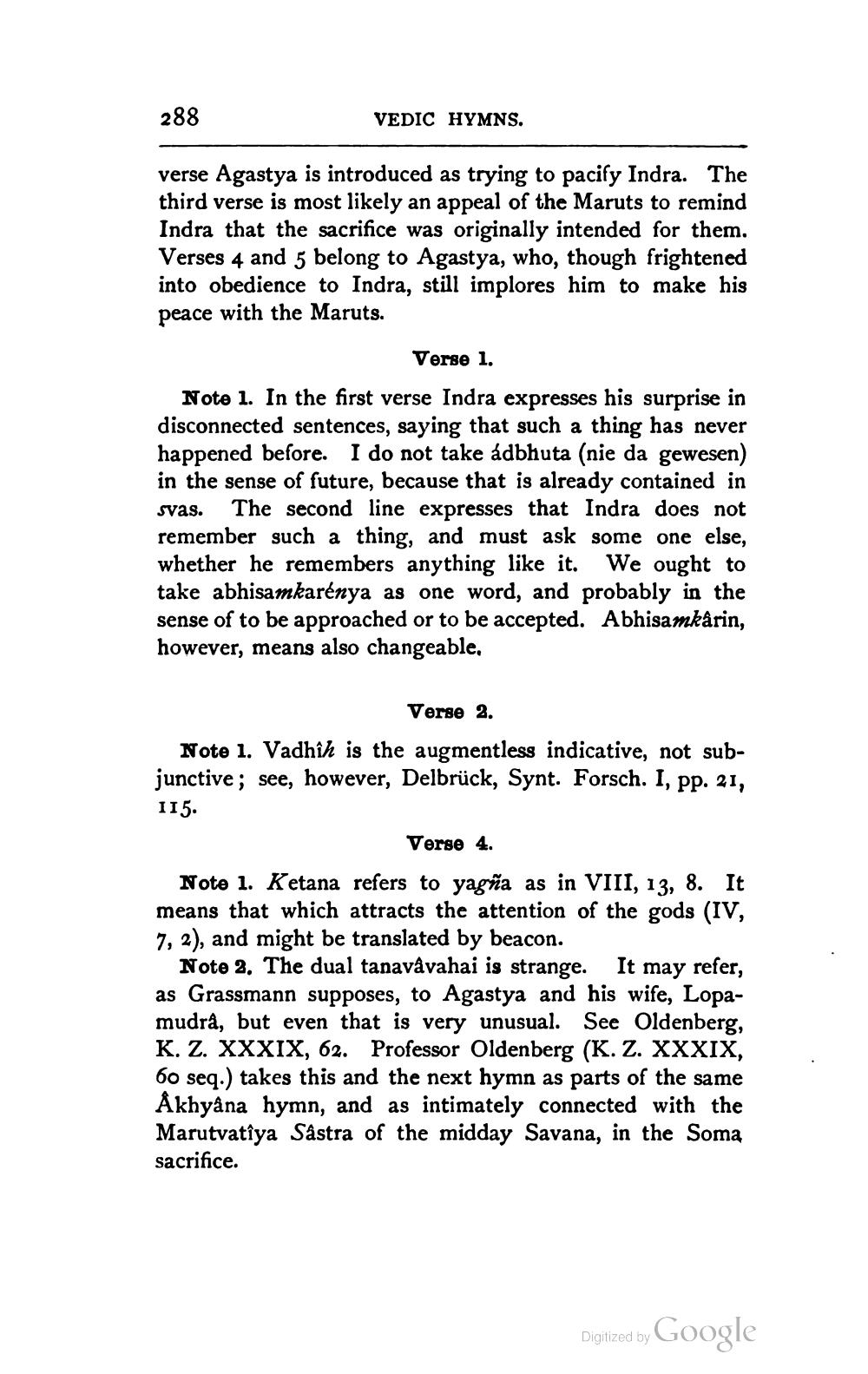________________
288
VEDIC HYMNS.
verse Agastya is introduced as trying to pacify Indra. The third verse is most likely an appeal of the Maruts to remind Indra that the sacrifice was originally intended for them. Verses 4 and 5 belong to Agastya, who, though frightened into obedience to Indra, still implores him to make his peace with the Maruts.
Verse 1.
Note 1. In the first verse Indra expresses his surprise in disconnected sentences, saying that such a thing has never happened before. I do not take adbhuta (nie da gewesen) in the sense of future, because that is already contained in svas. The second line expresses that Indra does not remember such a thing, and must ask some one else, whether he remembers anything like it. We ought to take abhisamkarénya as one word, and probably in the sense of to be approached or to be accepted. Abhisamkârin, however, means also changeable.
Verse 2.
Note 1. Vadhîh is the augmentless indicative, not subjunctive; see, however, Delbrück, Synt. Forsch. I, pp. 21, 115.
Verse 4.
Note 1. Ketana refers to yagña as in VIII, 13, 8. It means that which attracts the attention of the gods (IV, 7, 2), and might be translated by beacon.
Note 2. The dual tanavavahai is strange. It may refer, as Grassmann supposes, to Agastya and his wife, Lopamudra, but even that is very unusual. See Oldenberg, K. Z. XXXIX, 62. Professor Oldenberg (K. Z. XXXIX, 60 seq.) takes this and the next hymn as parts of the same Åkhyana hymn, and as intimately connected with the Marutvatîya Sastra of the midday Savana, in the Soma sacrifice.
Digitized by
Digitized by Google




